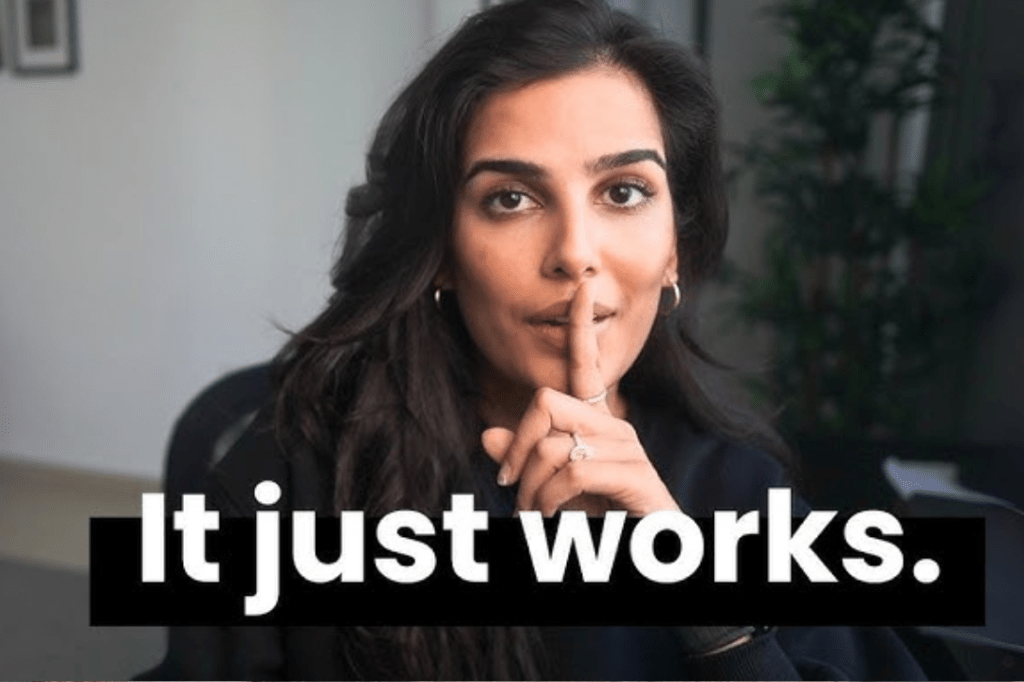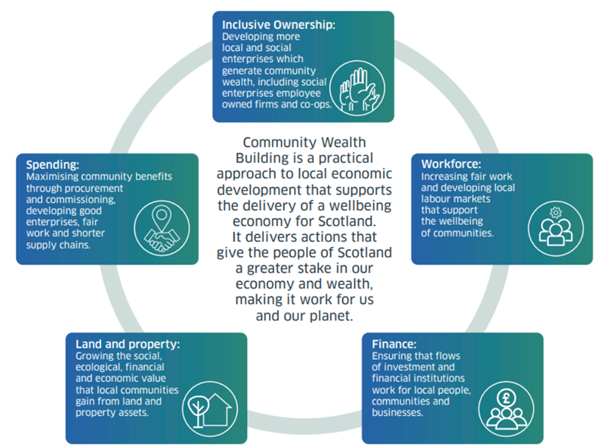Small actions lead to significant results. Take Nischa Shah, for example, who left her six-figure investment banking job and built a million-dollar content business instead. Her viral YouTube video, “17 Habits That Made Me Rich,” has racked up nearly 3 million views, in which she divulges the practical daily habits that gradually transformed her finances.
“The key to getting rich isn’t life at the extreme, like waking up at 4 a.m.,” Shah explains at the video’s start. “It’s about forming micro-habits: tiny habits that you follow consistently. These small habits compound over time and not only have a big impact on your finances, but also on your physical, mental, and emotional well-being.”
Shah’s approach is refreshing. Her success stems from manageable, everyday practices that anyone can adopt, rather than radical lifestyle changes or complex strategies. She recommends smart, consistent habits that seem minuscule in the moment, but add up over time. Read on for Shah’s top tips:
17 game-changing financial habits, according to Nischa Shah
1. Create more than you consume
Shah highlights research from Thomas Corley’s Rich Habits: The Daily Success Habits of Wealthy Individuals, which shows that 67% of wealthy people watch less than an hour of TV daily, while 77% of those struggling financially watch significantly more.
Another interesting stat from Corley: only 6% of the wealthy watch reality television, compared to 78% of the poor.

“The wealthy are not avoiding watching TV because they have some superior human discipline or willpower,” he writes. “They just don’t think about watching much TV because they are engaged in some other habitual daily behavior — reading.”
The takeaway here is that active creation trumps passive consumption. Whether it’s launching a YouTube channel, writing stories, or learning to code through interactive apps, spending even 15 minutes daily on creative activities builds valuable skills and experience.
2. Create distance from negative people
Motivational speaker Jim Rohn claims that we are “the average of the five people we spend the most time with,” meaning that we are greatly influenced by those around us.
Shah recommends keeping your distance from negative people who gossip, complain constantly, or bring toxic energy to the table, as these influences can subtly derail your process. Instead, surround yourself with like-minded people who discuss building wealth and solving meaningful problems.
3. Create an ‘I can do this’ file
Over the past two years, Shah has developed a powerful habit: creating a personal “motivation archive.” Every time she achieves something significant, she writes everything down in painstaking detail, from the nerves that paralyze her beforehand to the admiration she receives afterwards.
She keeps a dedicated tab in Notion (this could work equally well in any other digital workspace) called “I can do this,” where she documents her achievements, milestones, and moments when she pushed through fear. By recording these experiences, she’s created a personal evidence file that reminds her of her own resilience whenever self-doubt creeps in.
4. Practice gratitude
Shah swears by gratitude journaling for boosting motivation and happiness. Though initially skeptical, she changed her mind after learning from Sophia Godkin that appreciation is fundamental to happiness. Every night at 8 p.m., Shah opens the Day One app to record the day’s highlights and things she’s grateful for, often adding a photo to capture the moment.
Research shows that daily gratitude leads to meaningful reductions in anxiety and depression symptoms, improved sleep quality, enhanced mood and happiness, and increased life satisfaction. In fact, daily gratitude practices even benefit physical health, with studies showing increased cardiovascular health, improved longevity, an immune system boost, and stress reduction.
5. Automate saving and investing
In this segment, Shah advocates for the “pay yourself first” principle, which automatically stashes money in savings and investments before you can spend it. She automates transfers to saving and investment accounts on payday to ensure that her money grows steadily without requiring willpower or manual effort. This efficient system builds wealth while also naturally curbing impulse purchases.
Investopedia describes the “pay yourself first” method as simply building a retirement account, creating an emergency fund, or saving for other long-term goals, such as buying a house.
6. Get specific
When setting financial goals, Shah recommends being ruthlessly specific. Rather than vaguely promising to “save more,” she suggests concrete targets with straightforward math. For instance, “I’ll save $30,000 by the end of 2027 by setting aside $1,250 each month.” This precision transforms abstract financial goals into actionable items.
7. Audit spending into three buckets
Shah breaks down expenses into three practical buckets:
- Fundamentals (housing, food, utilities)
- Fun (dining out, travel, entertainment)
- Future (investments, savings)
She reframes budgeting not as a restriction but as a tool for clarity: a reasonable budget is like a financial dashboard that shows exactly where your money goes. This practice can be quite liberating! Shah shares her secret—a free spending tracker that helps identify patterns and pinpoint areas of unnecessary spending.
8. Learn something new about money weekly
Financial literacy is an ongoing journey. Your relationship with money began at a young age, and these early experiences shaped everything—from whether you feel confident investing to the jitters you get when you check your bank balance. Luckily, you can rewire these patterns with persistent learning. Master a new investing app, negotiate your salary with confidence, and read up on tax strategies. Dedicate time each week to learning about investing, personal finance, and entrepreneurship. Even 20 minutes a week can lead to significant knowledge over time.

9. Stop caring about other people’s opinions
Shah stresses that other people’s judgments about your financial choices can derail your progress. Worrying too much about what others think is a common problem, but Shah offers a surprisingly practical tip. When someone’s opinion starts to drag you down, ask yourself: Does this person’s point of view align with where you’re headed? If the answer is no, then redirect that energy back into your own financial goals. This simple filter has allowed her to take significant risks and put herself out there more often, without getting paralyzed by irrelevant criticism.
10. Understand and avoid a ‘yes’ trap
“The Yes Trap is a subtle yet powerful force that pulls us towards overcommitment,” writes Robert Puff. “It’s that nagging feeling that we should always say ‘yes’ to requests, invitations, and opportunities, even when our plates are already overflowing.”
Puff explains that this habit stems from people-pleasing instincts, the fear of missing out, and discomfort with saying “no.”
Shah wholeheartedly agrees, calling out the yes trap for what it is: a reflexive tendency to agree to every request, even when you’re already stretched thin. Sure, saying yes feels like the easier option in the moment—less friction—but it quietly leads to burnout, resentment, and the erosion of your agency. How can one avoid this trap? Get clear on your goals and what you’re trying to accomplish; when your destination is sharp and specific, it becomes easier to recognize distractions and politely decline them.
11. Invest in yourself regularly
An overarching theme in Shah’s video is the idea of investing in yourself—not just with money, but also with time and attention.
The best investment you can make is backing yourself and dedicating yourself to your own skills, knowledge, and capabilities. Shah recommends starting with a platform like Brilliant, which breaks down intimidating subjects like computer science, statistics, and algorithms into bite-sized interactive lessons that you can tackle on your phone. It’s a tool that makes learning feel like a breeze, rather than homework.
12. Build multiple income streams
Millionaires don’t rely on a single paycheck; they stack income streams. Welcome to diversification, which means spreading your money across a mix of investments to smooth out your returns. The idea is that different types of investments perform differently over time, so it’s critical to invest across the three main asset classes (a.k.a. asset classes): cash, fixed income, and equities.
For Shah, that looks like money pulled from brand deals, affiliate commissions, YouTube ads, investments, and selling her own products. This way, if one stream dries up, the others are there to keep you afloat. Don’t know where to start? She advises beginning with one stream that matches what you’re already good at or genuinely curious about, then slowly adding new streams.
13. Simplify decision-making
It’s time to stop making the same decisions over and over. The path to financial freedom is paved with discipline: set clear rules for spending, saving, and investing, then let those guidelines do the heavy lifting.
Shah seeks to reduce decision fatigue by optimizing her life in small ways. Instead of agonizing over what to wear each morning, she maintains a slight rotation of work clothes. Apply this principle to any area of your life where you’re burning mental energy on autopilot tasks.
14. Network with intent and add value
Shah points to Chris Donnelly, the founder of Verb Brands. This digital marketing agency works with luxury brands like Jimmy Choo and Creed Fragrances. Within his first year, Donnelly pulled in $10 million, and largely credits the “who factor.”
“He went through a phase where he was reaching out to 50 or more people a month, or asking other people to introduce him to someone,” Shah explains, recounting a recent conversation with Donnelly. “He stressed the importance of the Who Factor in everything that we do.”
15. Take action before feeling ready
Making mistakes is how you learn, and waiting around until you suddenly feel “ready” is a lost cause. Most of the time, that moment of clarity never really arrives. Successful people start before they’re ready and figure it out as they go. Trust your gut and take that first step, even if you’re winging it.
16. Have open money conversations
While 66% of Americans believe that open conversations about money are the key to financial freedom, over six in 10 Americans (62%) don’t talk about money, according to Empower. In addition, the financial site finds that people would rather discuss politics (43%) and death (32%) than their own finances (24%). Seemingly, there’s no one to open up to: 75% of respondents say they don’t discuss finances with their friends, family (63%), or even their spouse/partner (46%).
Shah encourages people to talk about money: break the taboo and share what’s working for you and what isn’t. The point is to normalize the conversation so it stops feeling like an off-limits topic.
17. Apply the 1% progress rule
There’s no need to overhaul your entire financial life; just aim to get better by 1% each month. Save a little more, spend a little less, earn a little extra. While none of this feels dramatic in the moment, these tiny improvements add up to real financial momentum.
Your financial transformation starts now
Shah’s journey from corporate burnout to millionaire content creator proves that financial freedom is real, tangible, and within your reach. Which habit will you start with today?































